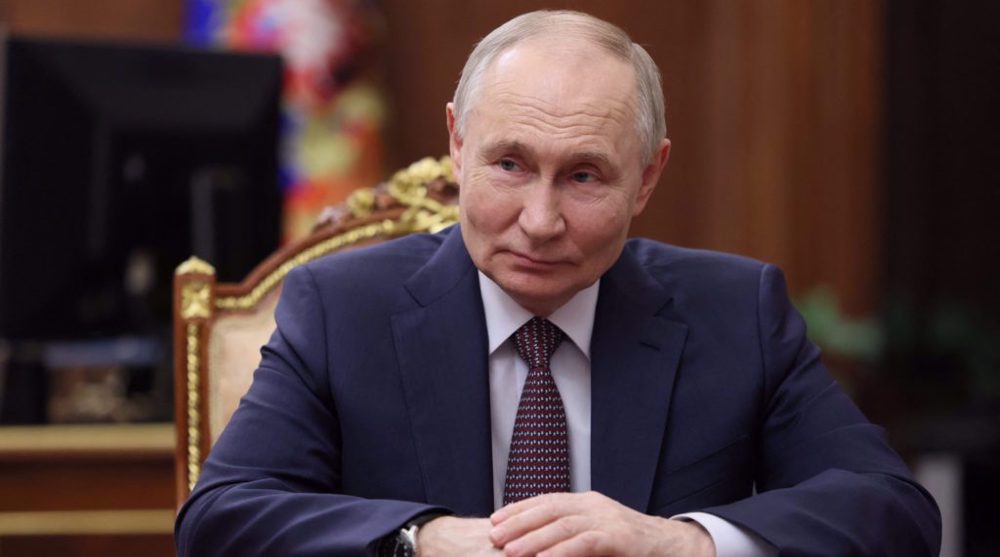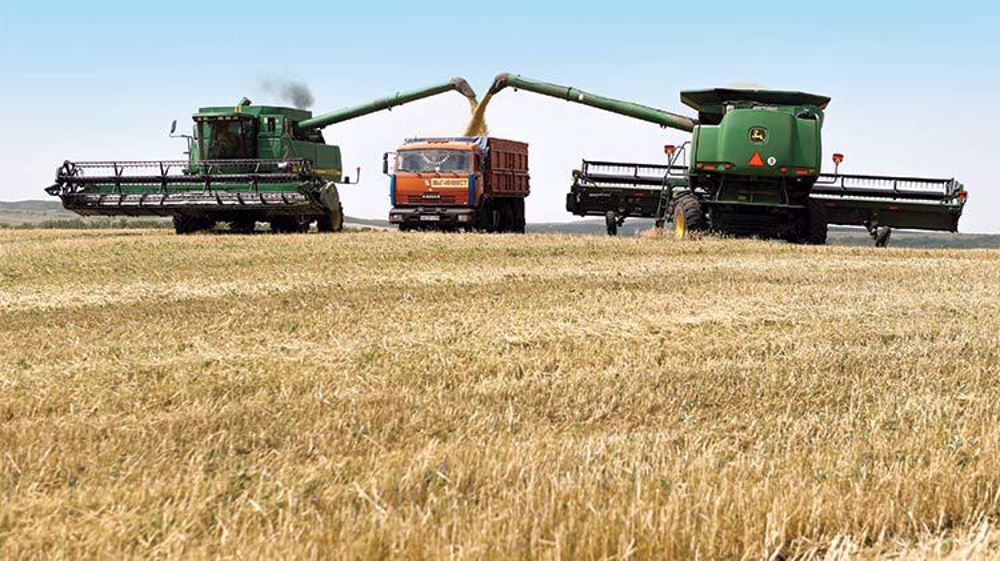US sanctions on Russia worsened global food crisis: Russia's US envoy
The Russian ambassador to the United States says Washington’s illegitimate sanctions against Moscow have worsened the unfolding global food crisis.
Ambassador Anatoly Antonov said on Friday that difficulties in the global food market have been building up for a long time, but “the crisis was further exacerbated due to the introduction by Washington and its satellites of illegitimate sanctions against Russia."
Russia has come under a new raft of sanctions from the US and its Western allies after President Vladimir Putin launched an offensive against Ukraine on February 24.
The ongoing war, and the subsequent blockade on Ukraine’s Black Sea ports, has endangered the world food supply by preventing Ukraine from shipping its agricultural products.
"Despite the references of US officials to exemptions from the restrictions, which allegedly provide for the opportunity for our country to trade in farm goods,” Antonov added.
He also said that Russia’s “domestic exporters often don’t have a chance to make shipments."
"They face blocked payments, denials of loans and insurance, problems with booking freight ships, purchase of farm equipment and even seeds," he added.
"In addition, the US continues to increase import taxes on our fertilizers,” Antonov said.
The Russian envoy also warned the US against “shifting the blame” on Moscow, after the Pentagon on Thursday accused Russia of “weaponizing food.”
The Russian diplomat said that Moscow “is committed to its export obligations and is ready for negotiations to resolve this most serious problem, including through the UN."
Unprecedented waves of sanctions against Russia have sent the prices of grain, cooking oil, fertilizer and energy skyrocketing, hurting global growth.
Russia said on Wednesday that it would open a safe corridor for foreign ships to leave Ukraine’s Black Sea ports, and the port in Mariupol.
Ukraine, which is a major exporter of corn, barley, sunflower oil and rapeseed oil, used to export most of its goods through its main ports on the Black and Azov seas. But it has been forced to export by train or via its small Danube River ports since the Russian campaign began.
The ongoing conflict has reduced Ukraine's grain exports this month by more than half compared to a year ago.
Since the war in Ukraine, wheat and corn prices have jumped 41 percent and 28 percent respectively,
Russia and Ukraine together produce almost 30 percent of the global wheat supply.
Experts warn that rising food prices and shortages in the fragile emerging markets in Africa and the Middle East could lead to a humanitarian disaster.

Iran rules out nuclear talks with US amid ‘maximum pressure’ campaign

Putin says not opposed to Europeans’ involvement in Ukraine talks

Russian consulate in France comes under attack on Ukraine war anniversary
VIDEO | Gazans striving to survive with bare hands
'Shocking attack on free expression': Canadian politician slams arrest of pro-Palestine activist
West Bank Palestinians fear Gaza style destruction as Israel escalates raids
Hamas: Ibrahimi Mosque massacre testament to Israel’s criminal policy
Trump eyes Ukrainian rare earth minerals in exchange for military support to Kiev
Six Gaza children, including newborn girl, die of cold weather as Israel blocks aid
Iran rules out nuclear talks with US amid ‘maximum pressure’ campaign
Israeli tanks roll into West Bank first time in 20 years as prelude to forcible annexation










 This makes it easy to access the Press TV website
This makes it easy to access the Press TV website